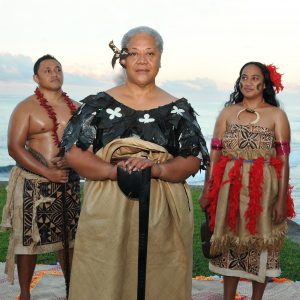It might seem cliché or exaggerated to continue to blame former U.S. President Donald Trump for all of the world’s ills, especially after he left office. Yet his — and his party’s — behavior leading up to and following last November’s presidential election are still rippling out beyond U.S. shores. Although Trump and the Republican Party were unsuccessful in their attempts to subvert American democracy, they did send a signal to the rest of the world that a refusal to accept results and hand over power in an orderly and graceful manner was a legitimate form of political action in democratic countries.
This seems to be the lesson learned by Samoa’s Human Rights Protection Party (HRPP) after the country’s legislative election in early April. After almost 40 years in power, the Samoan public signaled their intention to challenge what had been effectively one-party rule. A new political party emerged over the past year — led by a former member of the HRPP, Fiame Naomi Mata’afa — and achieved immediate success. Initial results from the election had the Faʻatuatua i le Atua Samoa ua Tasi (FAST) tied with the HRPP with 25 seats each in the country’s 51-seat legislature. That left one independent — Tuala Iosefo Ponifasio — holding the balance of power.
After negotiations, Tuala decided to join FAST, giving the party a majority in the legislature, ending the 23-year prime ministership of Tuila’epa Sailele Malielegaoi. Yet rather than transfer power with humility, the HRPP launched a series of assaults on the country’s democratic institutions aimed at retaining power. Extraordinarily, this has come with the active collusion of the largely ceremonial head of state, Tuimaleali’ifano Va’aleto’a Sualauvi.
The first effort was an attempt to add another seat to the legislature due to a constitutionally mandated gender quota. The provision dictates that 10 percent of the elected representatives be women. This has traditionally been understood as five women, even though this falls slightly under the 10 percent quota, given that the legislature doesn’t contain an even 50 seats. With only five women elected in the recent contest, Tuimaleali’ifano decreed that an extra seat would be awarded to a woman representing HRPP, which also resulted in evening the numbers in the legislature again between the two parties.
Subsequently, Tuimaleali’ifano declared the election void, and stated that a new election will need to be held to break the deadlock. However, the Supreme Court then ruled that the additional seat in the legislature was not necessary, paving the way for FAST to form a government, and Fiame to become Samoa’s first female prime minister.
Yet, the dawning of a new political era in Samoa, particularly one led by a woman, has proved difficult for the country’s traditional “boy’s club” to accept. This has led to continued defiance. With the Supreme Court clearing a path for FAST to form a new government, Tuimaleali’ifano then announced that parliament would be suspended. The Supreme Court ruled that the suspension was unlawful, and ordered that parliament convene as scheduled.
Yet HRPP has refused to submit themselves to the Supreme Court’s rulings. When officials arrived at the legislature for the new parliament to take its seats and the new government to be sworn in, they found that the speaker had ordered the doors to the building locked and everyone — including the chief justice of the Supreme Court and the commissioner of police — were to be refused entry. This led to an extraordinary scene in which the new government was sworn into office in a tent on the lawn outside the parliament building.
Meanwhile, the former prime minister, Tuila’epa, has issued a series of increasingly unhinged statements in his attempt to retain power. In Trumpian tones, Tuila’epa has accused the Supreme Court of favoritism, stated that the swearing in of the new prime minister was “treason,” and also proclaiming himself to be “appointed by God.” Effectively, the former prime minister has declared that the country’s democratic institutions are irrelevant.
By contrast, Fiame and the FAST party have displayed restraint and professionalism, simply following the institutional requirements, and not acting in a manner that would inflame the public. Without an army, Samoa’s police are the country’s only security institution; they have also wisely resisted any attempts to escalate the situation. The hope is, instead, that Tuila’epa and the HRPP will eventually cease their political theater and accept what the people have decided at the ballot box.
Regional leaders have issued cautious statements urging all parties to follow the rule of law, but the situation may nevertheless inspire others who may see to undermine institutional norms elsewhere. Hopefully, once this unfortunate episode in Samoa is over, it will lead to a strengthening of fealty to institutions, and a prevention of the current global democratic decay from taking further root in the Pacific.

































